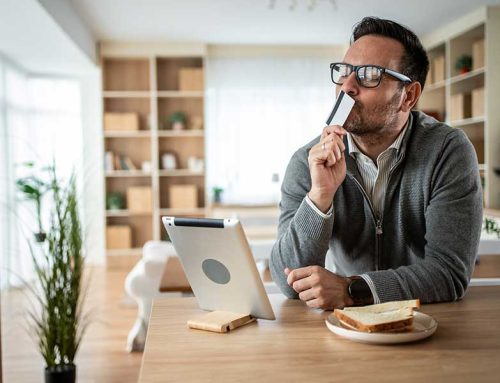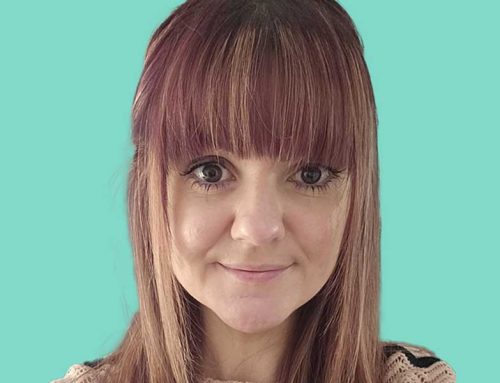In the first of this two-part series, Psychiatry UK consultant psychiatrist Dr Alexandros Chatziagorakis discusses what taking care of ourselves actually means and identifies a few fundamental ideas and strategies for a successful self-care toolbox.
What is self-care?
‘Self-care’ is a widely-used term in relation to mental health and wellbeing. But does anyone know what self-care actually is?
Taking long hot baths, spa trips and pampering yourself – or having a lie-in, eating healthily and exercising? Or simply paying your bills and tackling the chores you’ve been avoiding? Is it possible that all of these things could be called self-care?
Even the dictionary has differing definitions for self-care:
- The practice of caring for yourself when you are ill or to stop yourself from becoming ill.
- The practice of doing activities that you enjoy or that are relaxing, especially in order to improve or avoid stress.
- A situation in which children care for themselves when their parents are not at home.
[1]
The NHS describes self-care more practically, as treatment you can carry out by yourself for minor conditions such as coughs and colds, headaches and sore throats. “In practice this means a person decides that they can manage their illness without seeing a doctor.” [2]
The mental health charity Mind states that ‘self-care techniques and general lifestyle changes can help manage the symptoms of many mental health problems’ [3].
Following the COVID-19 pandemic, Professor Simon Du Plock argued that we have developed new ways to ‘self-regulate and manage our anxiety rather than be overwhelmed by it’ [4].
Du Plock explains that these new ways include activities such as ‘reading, writing, singing, painting, making music, walking in nature, and gardening’, and that these new strategies may ‘connect us to our sense of self and to others – and to what gives us meaning in our lives.’
With so many different explanations, defining self-care can be confusing. Perhaps self-care changes along with your needs? Maybe, as Du Plock suggests, we develop new ways to look after ourselves depending on our intrinsic needs.
It is no wonder the term ‘self-care’ is popular – but are we doing it right?
Can types of self-care exacerbate mental health problems? Can the wrong form of self-care make a situation worse? For example, if someone is suffering from anxiety because they need to fill out an important form then takes a bath instead, the cause of the anxiety remains. A better method would be to ask a loved one to help with the form, dealing with the stressor, … after which relaxing may be appropriate.
How should we define self-care?
The World Health Organization’s (WHO) definition of self-care is the ability of individuals, families and communities to promote their own health, prevent disease, maintain health, and to cope with illness and disability with or without the support of a health worker [5].
I personally prefer the definition given by Dorociak et al and see self-care as ‘a multidimensional, multifaceted process of purposeful engagement in strategies that promote healthy functioning and enhance well-being’ [6].
Self-care strategies vary and depend on a number of factors, both internal (i.e. the individual’s abilities and preferences, their physical and mental health problems) and external (i.e. their circumstances).
However, there are a few fundamental areas and strategies that should be part of everyone’s self-care toolbox.
- Sleep
- Nutrition
- Physical activity/exercise
- Positive psychology/gratitude
- Structure/routines & activities
In the first of this two-part series, we take an in-depth look at managing sleep, one of the most fundamental areas of self-care.
Sleep
The association between sleep and mental health is bidirectional. Our mental health can impact sleep, and sleep can impact our mental health.
Sleeping tablets are notorious for often being ineffective as well as for their side effects, so sleep hygiene is important. Sleep hygiene refers to a number of different practices and habits that can promote a good night’s sleep.
NICE recommends the following basic sleep hygiene practices:
- Establish regular sleep and wake times
- Create a proper environment for sleep
- Avoid excess eating, smoking or drinking alcohol before sleep
- Take regular physical exercise
- Looking at sleep hygiene in more detail, I have grouped my recommendations into 7 categories.
Looking at sleep hygiene in more detail, I have grouped my recommendations into 7 categories.
- Sleep routine and consistency
- Try to do the same things every night before you go to bed so that you have a pattern (see recommendations on relaxation).
- Try to go to bed and get up at about the same time every day. This will help you set your body’s internal clock and optimise the quality of your sleep.
- Avoid day naps, because if you have trouble falling asleep or staying asleep at night, napping during the day can make things worse and perpetuate a vicious cycle.
- If you feel the need to sleep in at the weekends, try to make it no more than an hour later than usual.
- Relaxation
- Try to take your mind off sleeping and take time for relaxing activities before you go to bed.
- Before bedtime, listen to relaxing music.
- You may also have a cup of herbal tea. Sometimes called tisanes, herbal teas do not contain caffeine, are rich in antioxidants and can have a number of (both physical and mental) health benefits. Chamomile is renowned for its calming effects. Several studies actually suggest that it can help improve sleep and low mood. Passionflower and lemon balm teas can also help improve sleep, as well as reduce anxiety.
- Also before bedtime, have a bath or simply soak your feet in an Epsom salts bath. Epsom salts contain Magnesium Sulfate, which, when added to warm water, breaks down into magnesium and sulfate. When you soak your feet in an Epsom salts bath, these chemicals get into your body through your skin. This can help relax muscles and loosen stiff joints.
- If you have been lying awake for half an hour, get up, try to relax and then go back to bed.
- Try thinking about something nice, like going on holiday.
- Environment
- Create a calm and restful sleep environment: not too noisy or light, not too hot or cold and with a comfortable bed.
- If it is too noisy, earplugs may help.
- If it is too light, an eye-mask of blackout blinds may help.
- When it is too cold, a hot water bottle may help.
- Avoid using screens, such as smartphones, tablets, laptops, TVs, or gaming machines, within one to two hours before bedtime, and while you are in bed. These devices emit blue light, which stimulates your brain and inhibits the production of melatonin, the hormone your body needs to sleep.
- Food and drinks
Here’s what to avoid (and why):
- Caffeinated or energy drinks (coffee, tea, Coke, Pepsi, Redbull, even hot chocolate) in the hours before bedtime (caffeine is a stimulant and will interfere with your sleep).
- Alcoholic drinks before bed (alcohol can also interfere with and affect the quality of your sleep).
- Drinking too many liquids in the evening (this may result in frequent bathroom trips throughout the night).
- Big and heavy meals at night. Try to make dinnertime earlier in the evening, preferably 4 hours before going to bed. Avoid too spicy or acidic foods (they can cause stomach trouble and heartburn).
- Chocolate before bedtime (it also contains caffeine, which can keep you awake).
- Smoking (nicotine is another stimulant that can disrupt your sleep, especially if you smoke close to bedtime).
- Exercise
- Exercise vigorously during the day, as regular exercise will help you sleep better at night and feel less sleepy during the day.
- However, avoid exercising too close to bedtime, as exercise stimulates hormones such as cortisol, which can interfere with your sleep. Try to finish moderate to vigorous workouts at least three hours before bedtime. If you’re still experiencing sleep difficulties, move your workouts even earlier.
- Relaxing, low-impact exercises such as yoga or gentle stretching in the evening can help promote sleep.
- Don’t worry
- Easier said than done, try not to worry about not getting to sleep, as this will make things worse and will keep you awake for longer.
- Try to remember that not getting enough sleep will not hurt you; you will fall asleep after a while.
- If you are stressed or anxious and cannot switch your mind off when you go to bed, try to practice relaxation techniques, such as deep breathing, progressive muscle relaxation, or visualising a peaceful, restful place.
- In case you feel anxious or worry about something, make a brief note of it on paper and postpone worrying about it until the next day.
- If a great idea is keeping you awake, make a note of it on paper, and try to fall asleep.
- Try the old advice and count sheep.
- Sunlight
Try to get as much natural sunlight as possible. Melatonin, a naturally occurring hormone controlled by light exposure, helps regulate your sleep-wake cycle. Your brain secretes more melatonin when it’s dark, so you feel more sleepy, and less when it’s light, so you feel more alert.
- Go for a walk during the day.
- Exercise outdoors.
- Sit close to a window.
- Keep your windows or blinds open to let sunlight into your home or workplace.







Leave A Comment